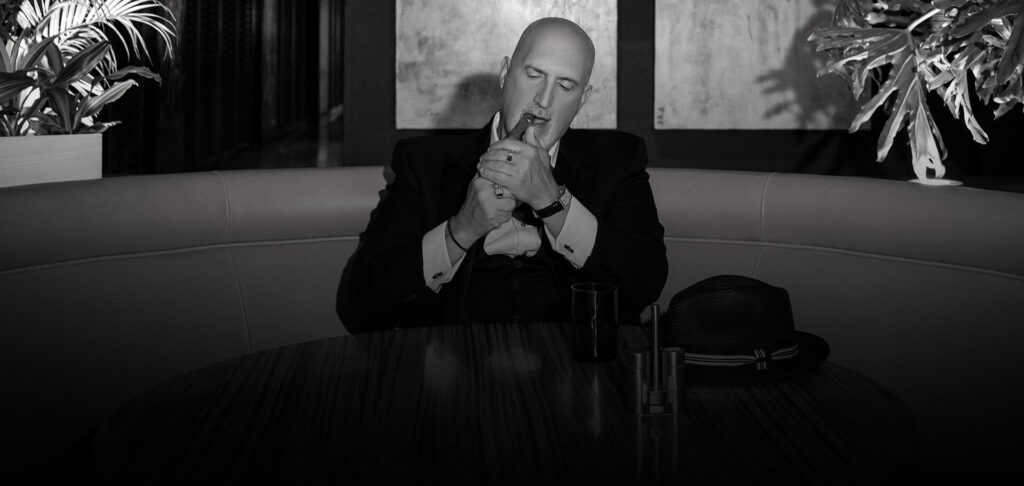Hey Folks …
I am very, truly disturbed. Thinking about thinking led me recently to thinking about language … and what I realized is not only don’t very few people think about language … most people can’t … and subsequently most people can’t and don’t think well at all.
This is extremely disturbing to someone committed to building futures that work … but let me layout my reasons as we go.
I’ve been “black” here on BlogNostra as they say in the world of advertising for quite some time, i.e.: silent and out of sight. I could list a whole ‘lotta’ reasons … but simply my activity has been elsewhere in terms of communicating with all’ya’all.
Without going into deep detail most of you probably know that I’ve been posting videos, sending out emails, trying to define a social networking strategy, writing on the forums … whew! … it’s exhausting sometimes thinking about all the ways. So I’ve chosen as one measure to limit my communication here … and yet …
This is my main forum to develop my ideas with you publicly, a place to essay and post articles about what catches my attention … and hopefully yours. So what’s re-captured my attention is the Value of Language. I mean this in a formal way. In other words thinking about language use, impact and action as a formal topic of incredible significance.
BUT, WHY NOW … WHY THIS?
Because language is one of the primary ways … if not THE primary way … in which we construct our perceptions, considerations and actions that in turn create the futures we individually and collectively live into.
Anyone who has been following my work knows that my main
concern has been on “Creating Futures That Work” for sometime now. During this evolution from the work I began over twenty years ago my attention has shifted more and more to collective effort and the impact of influence in making things happen collectively.
Okay, so where am I going with all of this …?
You might be asking yourself, “What’s does this have to do with language?” … I’d say just about everything!
Language is the main way we represent reality … it’s the main way we decide about what to be doing, what actions to take and not take … it’s the main vehicle for creating our futures, individually and collectively. That’s no small thing.
Yet, so little attention is paid to the teaching, training and practice required to master this technology of reality. So little as to amount to none for most folks.
Okay let’s get right to it … THE KEY TO POWER AND HAVING INFLUENCE IS A MASTERY OF LANGUAGE.
We don’t teach our children that this is really important … consider the amount of time and money spent on teaching our children mathematics or reading, to the same amount spent developing a knowledge of language in action. Yes, I know most school curriculums teach vocabulary development, grammar, functional writing and in some
cases even a bit of creative writing.
In many school curriculums very young children are asked to write ‘book reports’ as part and parcel of their training as young readers. These are basically summaries of what the book is about, and sometimes a bit more about what an opinion of the book as well. However none of this is training in the critical use of language, or training of language in action.
Yet, we literally create our futures in language … and we do so with little to no formal training whatsoever in how to do that!
If we were trained in ‘critical reading’ … the ability to read with a concurrent awareness of antecedents, allegory, multiple sources, concurrent writing … we would read what we encounter very differently. Instead we are taught to think that what is written is written “in black and white” … a colloquialism that is taken to mean, “if it’s written in black and white it must be true” or at least sho
uld be taken as true until proven otherwise … virtually always be someone else other than the reader.
Of course since we get a huge portion of our training in language usage and thinking in general from reading without critical reading skills we get little formal training in ‘critical thinking’ skills.
In other words most people don’t have any real training in ‘Critical Thinking’ whatsoever.
This used to be served in classical education by training in the reading of philosophy. The role this kind of training served was really more the development of ‘critical reading’ and ‘critical thinking’ though the development of strong training in mental skills associated with the formal reading of philosophy, maybe especially training in logic and logical systems.
Yet what I find when I raise this in ordinary conversation is that many people seem to think that “philosophy is dead” … a very dangerous proposition IMO. We are living with the results of this dangerous thinking in everyday decisions made by people who perceive themselves to be extr
emely well educated and capable of critical thought and decision-making in many cases. These people include the politicians we elect, the doctors responsible for our healthcare, teachers we entrust with the education of our children … are often themselves untrained in critical thinking, and in many cases therefore unable to employ the level of critical thought to make the decisions we ask them to IMO.
Critical language usage includes more than just what I’m calling critical reading skills, but must by default include ‘critical listening’ skills. Try finding training in critical listening and you’ll find a dearth of opportunity, you are however likely to find a plethora of training in what’s called, ‘active listening’ instead.
Essentially active listening training typically involves paying attention to what others are actually saying. One of the major aspects is listening when others speak instead trying to speak yourself, ignoring them, paying attention to other data in the environment and/or creating your response to them as they speak to you. What’s amazing is that I get that most people require training in actually listening to hear what others are saying.
But, make no mistake … ‘Active Listening’ is NOT the same as what I mean by ‘Critical Listening’.
Most folks can no more ‘listen’ critically than they can read critically. Then we’re surprised and shocked when people can’t communicate. Worse,we’re at the effect of those who do communicate powerfully, even when what they’re communicating endangers our future … and ill-prepared to take back control ourselves. Because we can’t and don’t read or listen critically when information is presented powerfully we tend to accept it as factual. This is the great skillset of many politicians, polemic
ists and pundits … despite a dearth of actual relation to reality.
In essence what I talking about here is arming yourself to protect and secure your future.
I’m focusing on the linkage between Power and Influence … I’m shifting the entire focus of my Unconventional Advice program around these very skills. My intention is to take the entirety of my study, training, expertise and professional practice and focus on the development of power and influence with my clients … essentiall
y taking back the ability to create their own futures … both on their own and with others.
FWIW I think this is not only very cool … but critical …
[PART 2 NOTE: I’ll be developing on these ideas in the case study I’ll be presenting in Part 2. This case study is based on an exchange I recently engaged in with a medical doctor in another forum that got be thinking again about how untrained and unskilled so many so called ‘professionals’ really are in these critical skills, and yet how significant their communication is to the average person by virtue of the positions they hold.
I think you’ll find the critique of the exchange offers you some critical insights into the power of language … and it’s potential and potent effect … especially in the hands of someone who is essentially unskilled and yet holds sway over others. I’ve no doubt after this case study you’ll be prepared to take back control and avoid becoming a victim of this game yourself … COMING SOON (promise), STAY TUNED.]
Best regards,
Joseph Riggio, Ph.D.
Copenhagen, Denmark



